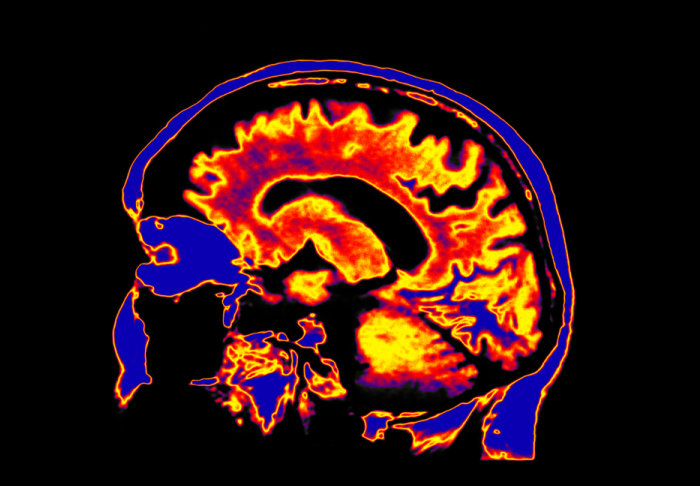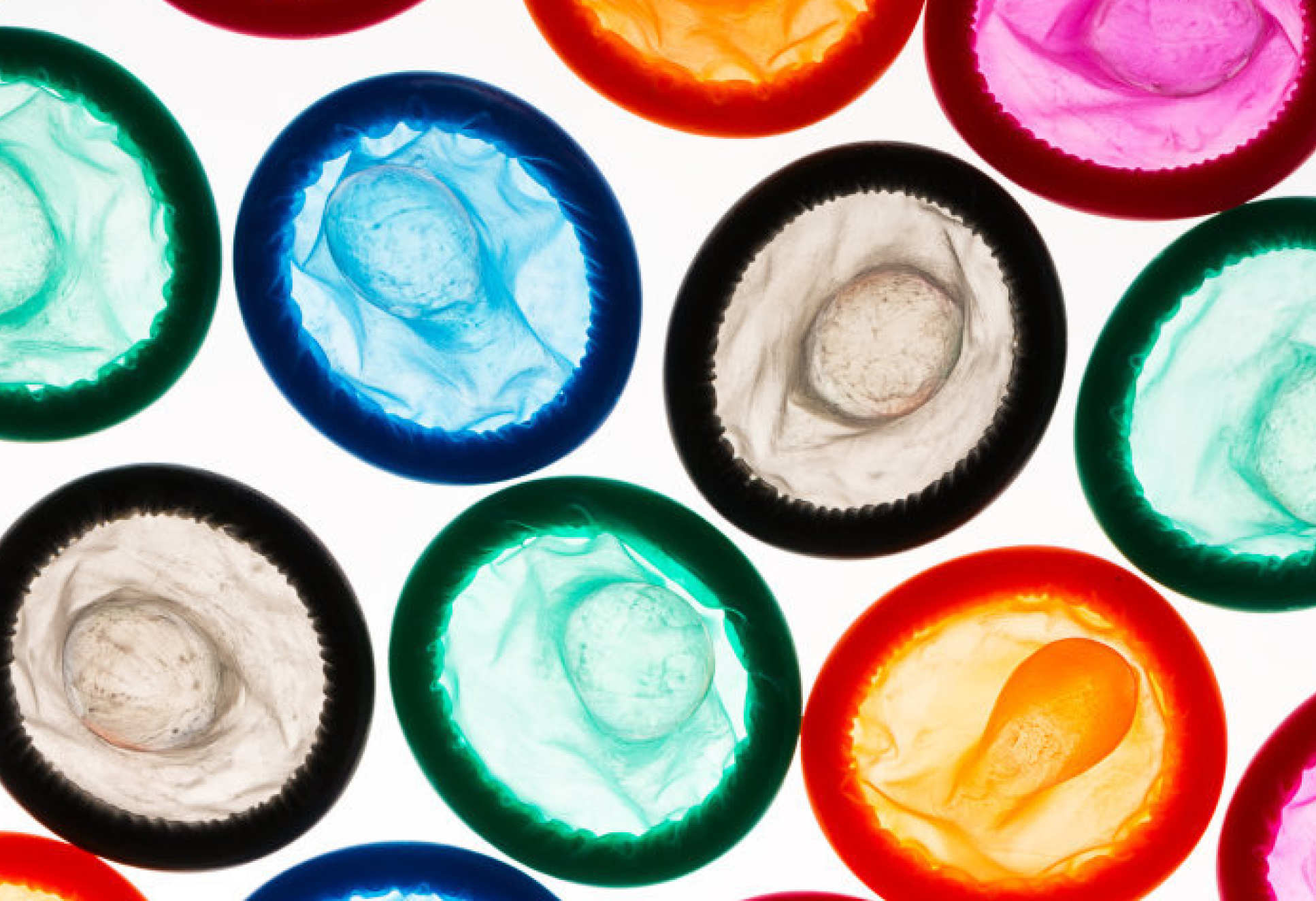The ten most popular Imperial news stories of 2019

As the decade comes to an end, we reflect on the stories that spiked your interest and topped the ‘most read articles’ chart this year.
Ranked by page views, here are your favourite stories of 2019:
10. Mystery arthritis-linked knee bone three times more common than 100 years ago | Imperial News
 Is it time to adjust the official number of bones in the human body? In April, Imperial researchers found that the small fabella bone, once thought to be a relic of the past, has made a comeback over the last century. The mystery bone, growing in a tendon of a muscle behind the knee, is now present in 39 per cent of the world population, making it three times more common compared to 100 years ago.
Is it time to adjust the official number of bones in the human body? In April, Imperial researchers found that the small fabella bone, once thought to be a relic of the past, has made a comeback over the last century. The mystery bone, growing in a tendon of a muscle behind the knee, is now present in 39 per cent of the world population, making it three times more common compared to 100 years ago.
Interestingly, researchers are not sure about the function of the fabella, but their analysis shows that people with osteoarthritis of the knee are twice as likely to have it.
Read what the BBC said about the findings.
9. Imperial wins funding to train hundreds of PhD students at six new centres
 At the beginning of the year, the Engineering and Physical Sciences Research Council announced a massive investment into the training of PhD students through Centres for Doctoral Training across the country – with six new Centres to be launched at Imperial.
At the beginning of the year, the Engineering and Physical Sciences Research Council announced a massive investment into the training of PhD students through Centres for Doctoral Training across the country – with six new Centres to be launched at Imperial.
Each of the new Centres is expected to receive between £5-7 million over the next nine years to train around 300 PhD students, focussing on bioengineering, machine learning and next-generation chemical synthesis.
8. Science of microdosing psychedelics 'remains patchy and anecdotal', says review
 In July, a team of researchers led by Imperial and Maastrict University published a review paper diving into the world of microdosing psychedelics such as LSD and psilocybin (the active ingredient in magic mushrooms). Despite the lack of scientific evidence, the use of psychedelic drugs to enhance productivity and creativity is common. In trying to answer questions of safety and possible benefits to the practise, researchers ended up with more questions than answers. The review highlighted the lack of scientific consensus on what constitutes as a ‘micro’ dose and need for controlled scientific studies on the topic.
In July, a team of researchers led by Imperial and Maastrict University published a review paper diving into the world of microdosing psychedelics such as LSD and psilocybin (the active ingredient in magic mushrooms). Despite the lack of scientific evidence, the use of psychedelic drugs to enhance productivity and creativity is common. In trying to answer questions of safety and possible benefits to the practise, researchers ended up with more questions than answers. The review highlighted the lack of scientific consensus on what constitutes as a ‘micro’ dose and need for controlled scientific studies on the topic.
7. “Edible water bottles” developed by Imperial start-up to be trialled at Marathon
 Fascinating biodegradable liquid bubbles known as Ooho made a splash in 2019. The capsules, made from seaweed and designed to contain water and other liquids, were trialled in the 2019 Virgin Money London Marathon. The company behind the innovation, run by Pierre Paslier and Rodrigo Garcia, aims to reduce plastic waste with their sustainable alternative to plastic bottles and packaging.
Fascinating biodegradable liquid bubbles known as Ooho made a splash in 2019. The capsules, made from seaweed and designed to contain water and other liquids, were trialled in the 2019 Virgin Money London Marathon. The company behind the innovation, run by Pierre Paslier and Rodrigo Garcia, aims to reduce plastic waste with their sustainable alternative to plastic bottles and packaging.
Here’s what CNN said about Ooho
6. World’s first ‘BioSolar Leaf’ to tackle air pollution in White City
 Another pioneering Imperial-based technology focussing on tackling environmental issues was the ‘Biosolar Leaf’ project - a system that purifies London’s polluted air through photosynthesis, just like trees.
Another pioneering Imperial-based technology focussing on tackling environmental issues was the ‘Biosolar Leaf’ project - a system that purifies London’s polluted air through photosynthesis, just like trees.
The Leaf, to be trialled in White city, generates breathable air at the same rate as one hundred trees, and facilitates the growth of microalgae and other organic biomass which can be extracted and used for plant-based food products. The large solar panel-like structures can also be installed on top of buildings to improve air quality in areas with high pollution.
Here’s what the Guardian said about the project
5. 9 things you can do about climate change | Imperial News | Imperial College London
 Tackling the climate crisis has been ‘the talk’ of 2019, so unsurprisingly our article highlighting nine ways to limit carbon emissions was very popular. Scientists at Imperial created a digital platform showing realistic ways we can all reduce our carbon footprint. Tips included simple adjustments to our everyday lives and the importance of conversation with friends and family to spread positive change.
Tackling the climate crisis has been ‘the talk’ of 2019, so unsurprisingly our article highlighting nine ways to limit carbon emissions was very popular. Scientists at Imperial created a digital platform showing realistic ways we can all reduce our carbon footprint. Tips included simple adjustments to our everyday lives and the importance of conversation with friends and family to spread positive change.
4. CT scans are the best alternative to colonoscopy to investigate bowel cancer
 In February, researchers from Imperial and UCL published showed that CT colonographies (CTC) are more effective than the traditional X-rays (barium enema) at finding bowel cancers and precancerous polyps. The CTC scan is less invasive and could pose as an alternative for patients who are not able to undergo a colonoscopy.
In February, researchers from Imperial and UCL published showed that CT colonographies (CTC) are more effective than the traditional X-rays (barium enema) at finding bowel cancers and precancerous polyps. The CTC scan is less invasive and could pose as an alternative for patients who are not able to undergo a colonoscopy.
Despite the hopeful results, doctors are cautious as CTC scans also detect unimportant findings which highlight the need for guidelines to help decide when further testing is needed.
3. First vaccine for chlamydia shows promise in early trials

The world might be getting its first vaccine against chlamydia thanks to Imperial research. Early results from a randomised trial comparing two different types of the vaccine with a placebo group showed that one particular formulation could provoke the needed immune response. The participants who received the vaccine with liposomes produced more antibodies, making it the suggested formulation for future studies. As the trial showed the vaccine was safe, phase two trials are now underway to investigate the potential of the chlamydia vaccine.
2. Imperial launches one of world's first online Masters in Machine Learning
 Come autumn 2020, Imperial students will be able to study their Masters in Machine Learning as an online course. The demand for professionals with data science and AI skills is growing rapidly and now, Imperial students get to explore the areas of computing, statistics and machine learning through the online education platform Coursera. The programme will be one of the first online courses of its kind in the world.
Come autumn 2020, Imperial students will be able to study their Masters in Machine Learning as an online course. The demand for professionals with data science and AI skills is growing rapidly and now, Imperial students get to explore the areas of computing, statistics and machine learning through the online education platform Coursera. The programme will be one of the first online courses of its kind in the world.
1. Imperial launches world’s first Centre for Psychedelics Research
 Finally, the story reaching the top of the ‘most read’-chart in 2019 was the exciting launch of the first Centre for Psychedelics Research in the world. The Centre, which will be based at the Hammersmith Campus, will allow Imperial’s Psychedelic Research Group to continue their pioneering investigations into the effects of LSD, the study of psilocybin and potential use of psychedelics to treat depression. One aim is to develop a research clinic focussing on the use of psychedelic in mental health care and as tools to explore basis consciousness of the brain.
Finally, the story reaching the top of the ‘most read’-chart in 2019 was the exciting launch of the first Centre for Psychedelics Research in the world. The Centre, which will be based at the Hammersmith Campus, will allow Imperial’s Psychedelic Research Group to continue their pioneering investigations into the effects of LSD, the study of psilocybin and potential use of psychedelics to treat depression. One aim is to develop a research clinic focussing on the use of psychedelic in mental health care and as tools to explore basis consciousness of the brain.
Here’s what Business Insider said about the Centre
---

Enjoy reading Imperial’s research and College news? Be the first to catch our stories with Imperial Today – the daily email bulletin of the College’s freshest online news and digital content. Sign up to Imperial Today.
Article text (excluding photos or graphics) © Imperial College London.
Photos and graphics subject to third party copyright used with permission or © Imperial College London.
Reporter
Press Office
Communications and Public Affairs
- Email: press.office@imperial.ac.uk
